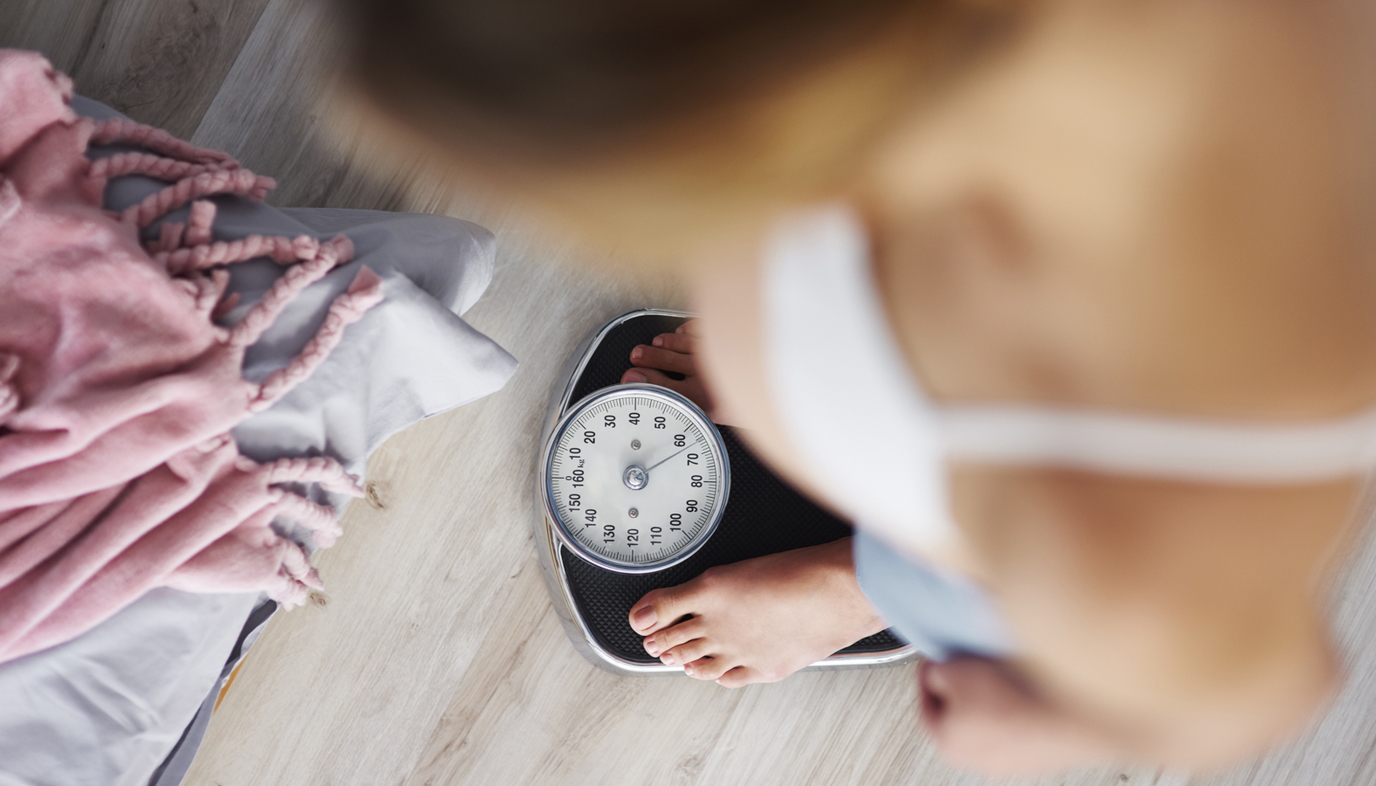
Many women worry about weight gain during pregnancy: how much will I gain? How much is too much? How will I lose it? What is the right amount of weight to gain to give the baby everything he or she needs? Though every woman should discuss her particular case with her doctor, there are general guidelines.
In a typical, single-baby pregnancy, a woman of healthy weight needs to gain 25-35 pounds. For those who are underweight before pregnancy, 35-45 pounds; overweight 15-25 pounds; and obese 15-20 pounds. Women pregnant with twins are advised to gain 35-45 pounds.
We have all heard about "eating for two" while pregnant, but "eating for two" most definitely does not mean "eating twice as much." You actually only need about 300 extra healthy calories per day, and one healthy snack can come in at 300 calories.

Why the recommended amounts for weight gain during pregnancy?
Consequences of Excessive Weight Gain
Increased risk of hypertension and gestational diabetes
Increased risk for preterm labor and other complications
Gestational diabetes increases your risk for Type 2 diabetes in the future
Pregnancy-induced hypertension affects the placenta's ability to deliver oxygen to your baby, which can result in a low-birth-weight baby
The more you gain, the more baby gains, and a large baby increases the likelihood of vacuum or C-section delivery
C-sections have a longer and tougher recovery period and increased risk of future C-sections
Heavy babies are at risk for health problems at birth and for childhood obesity
That extra weight is fat, which is harder to lose
Women who have not lost their pregnancy weight within six months postpartum are at increased risk of being obese 10 years later
Obesity is associated with many chronic health problems
Pregnancy is uncomfortable for everyone, but excess weight gain can mean more heartburn, varicose veins, hemorrhoids, and backaches; you may also feel even more fatigued from carrying the extra weight around.

Keys to Gaining Enough Weight But Not Too Much
Remember that pregnancy is not permission to eat whatever you want
Don't plan to eat more, but plan to eat healthier
Keep quick, easy, and healthy snacks on hand and prepped, so you are ready when the need strikes
Good choices include nuts, fruit, celery or carrot sticks, hardboiled eggs, yogurt, and cheese
Limit empty calories like chips and candy, they are not as filling and offer little nutrition
Avoid sweetened juices and sodas, cookies, cakes, and donuts
Avoid fried foods, since this may help reduce heartburn as well
Eat whole-grain bread and pasta (Whole grains have more vitamins, minerals, and fiber than refined grains and keep you full longer)
Exercise--walking and swimming are both excellent exercise for most pregnant women
If you already have a workout program, talk to your doctor about when and how to cut back
If you do not exercise, talk to your doctor about the best way to begin while pregnant
Don't try to "make up" for any morning sickness you suffered by eating more once it subsides
Talk to your doctor if you are worried about the extent of your morning sickness
